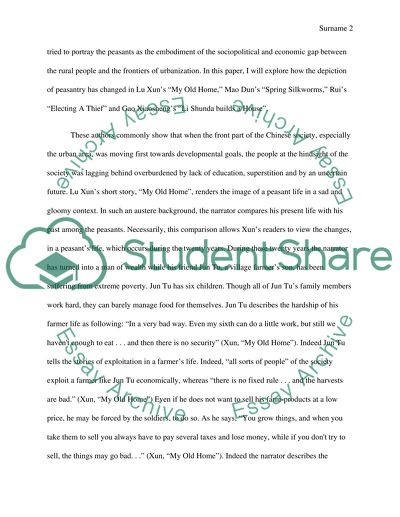Cite this document
(“Discuss the changes in the image of the peasant in modern Chinese Essay - 1”, n.d.)
Retrieved from https://studentshare.org/literature/1611357-discuss-the-changes-in-the-image-of-the-peasant-in-modern-chinese-fiction
Retrieved from https://studentshare.org/literature/1611357-discuss-the-changes-in-the-image-of-the-peasant-in-modern-chinese-fiction
(Discuss the Changes in the Image of the Peasant in Modern Chinese Essay - 1)
https://studentshare.org/literature/1611357-discuss-the-changes-in-the-image-of-the-peasant-in-modern-chinese-fiction.
https://studentshare.org/literature/1611357-discuss-the-changes-in-the-image-of-the-peasant-in-modern-chinese-fiction.
“Discuss the Changes in the Image of the Peasant in Modern Chinese Essay - 1”, n.d. https://studentshare.org/literature/1611357-discuss-the-changes-in-the-image-of-the-peasant-in-modern-chinese-fiction.


